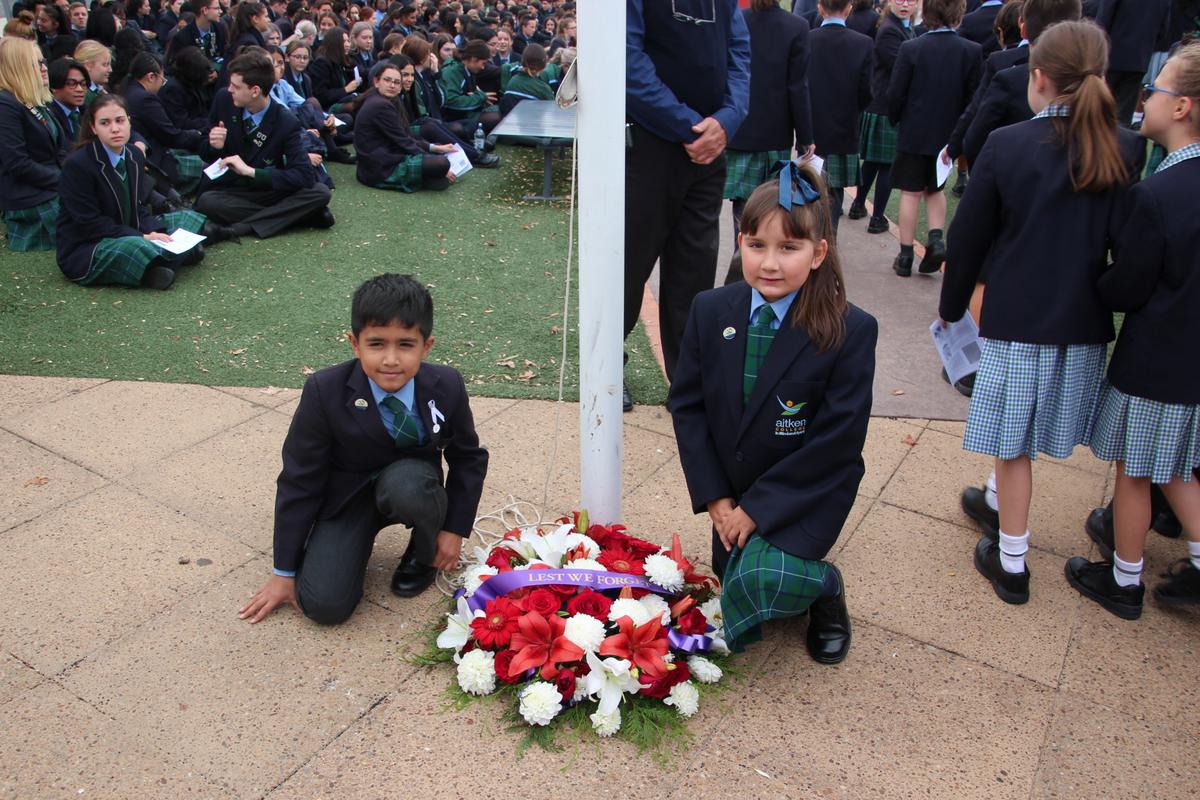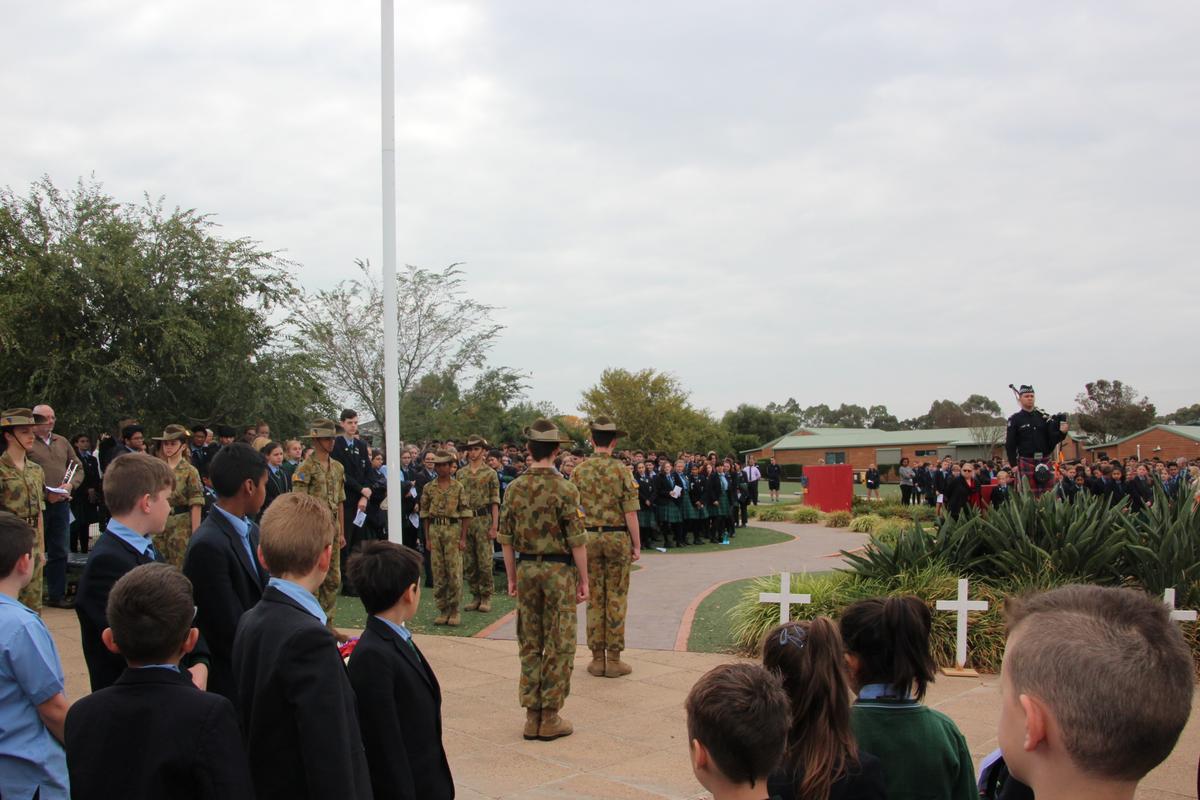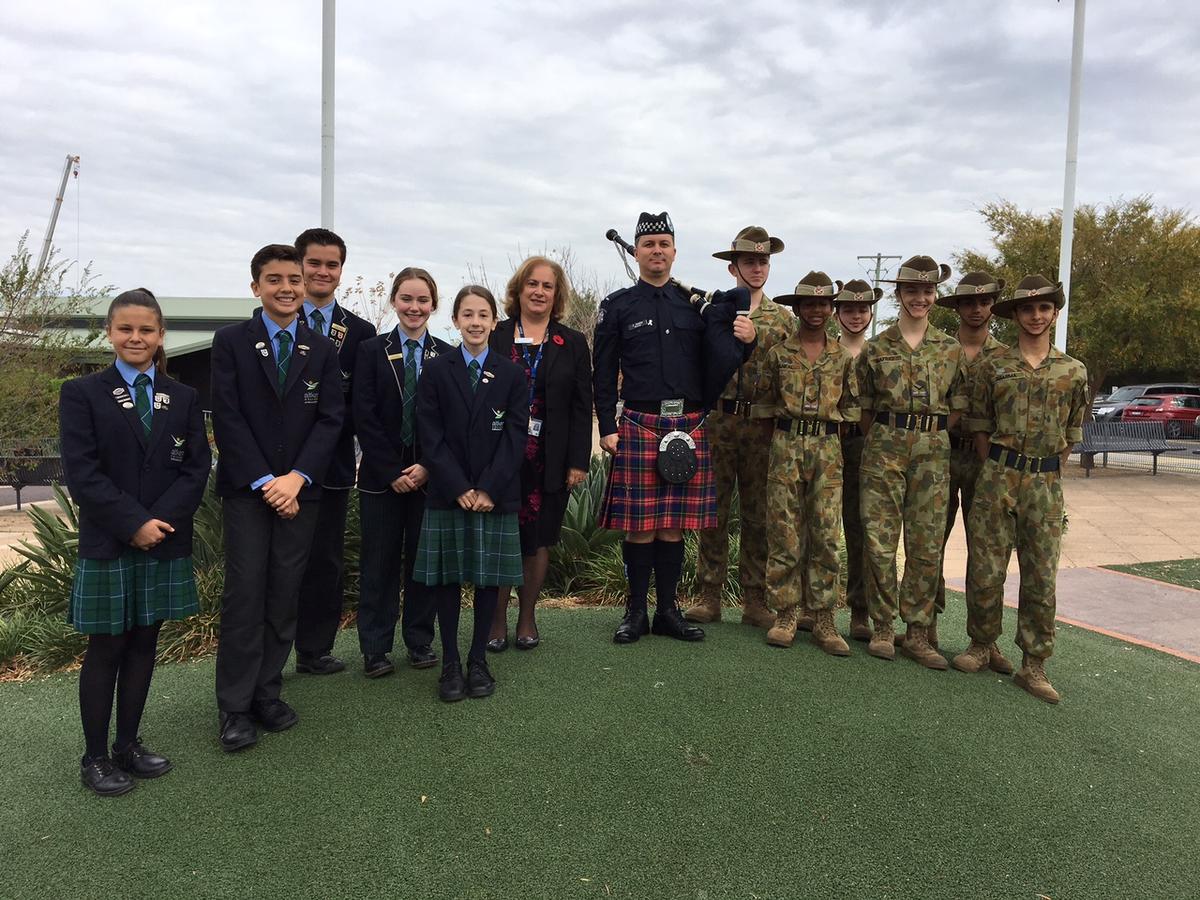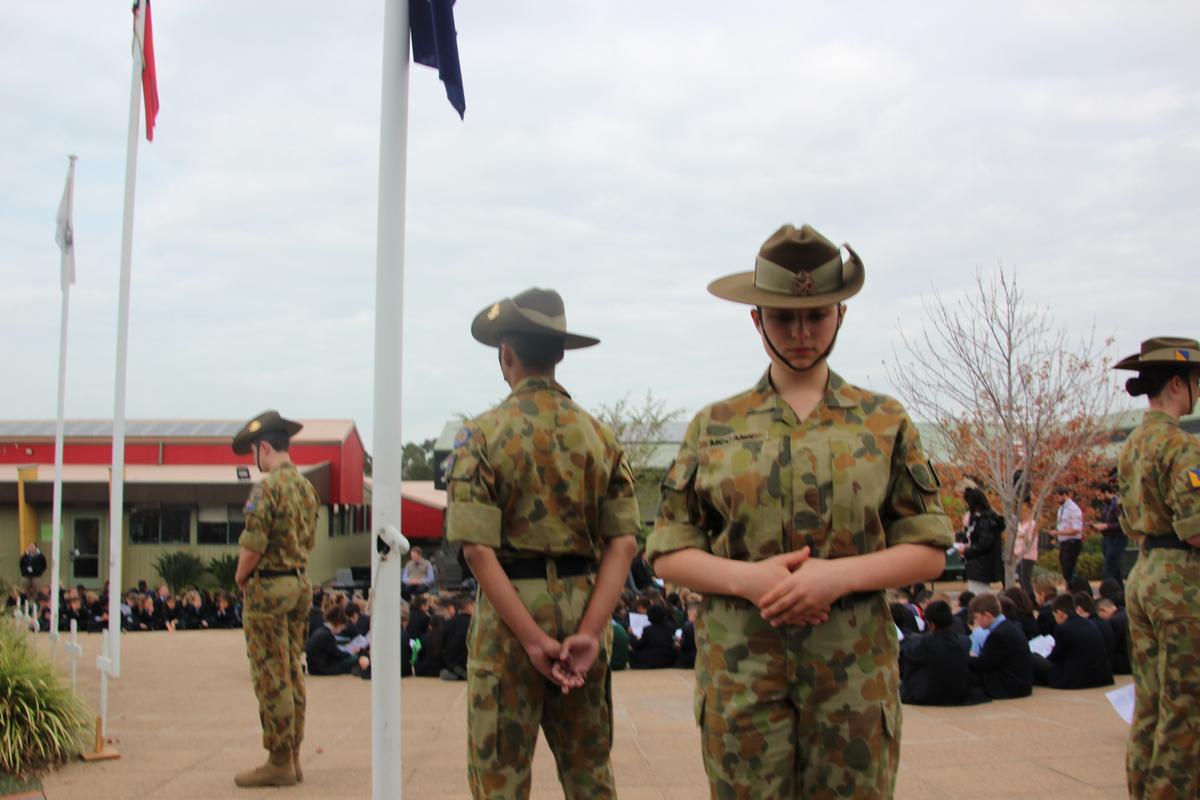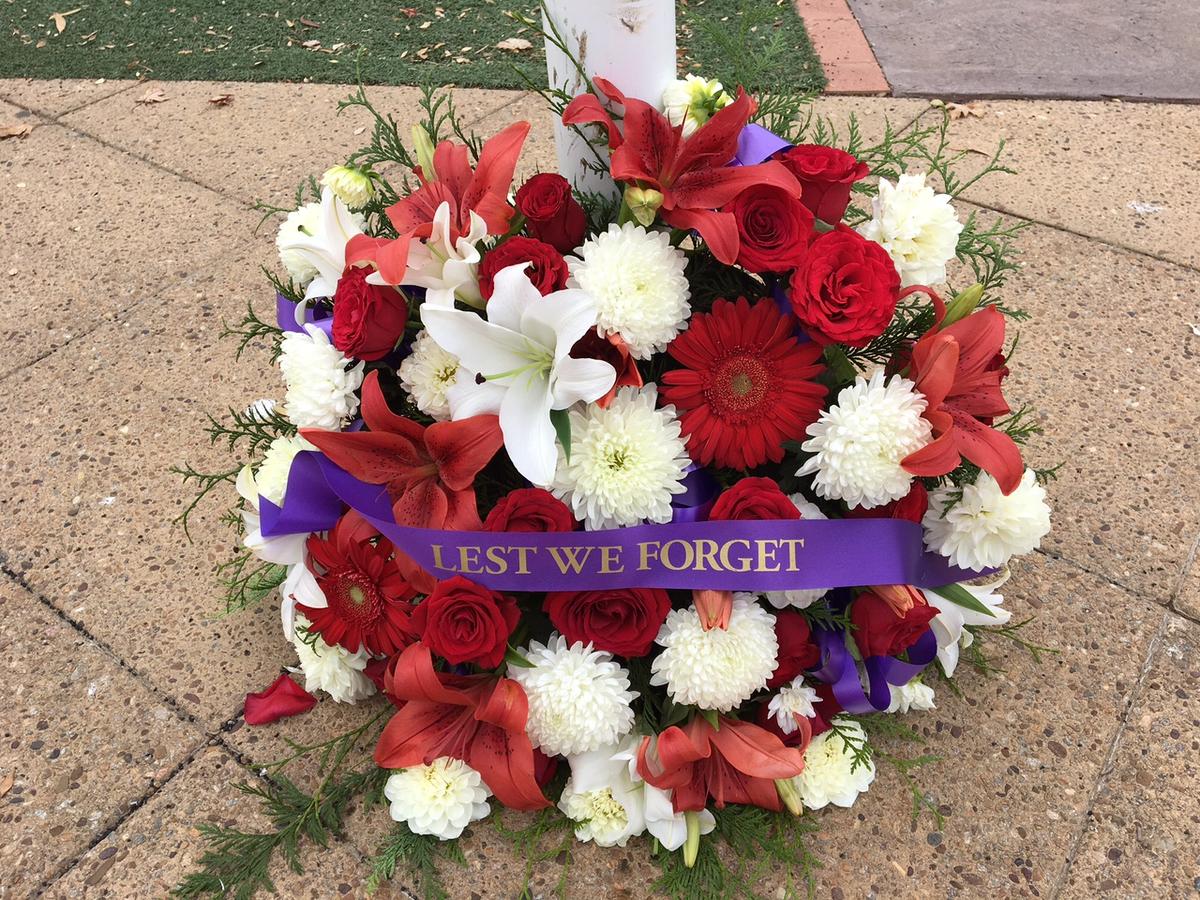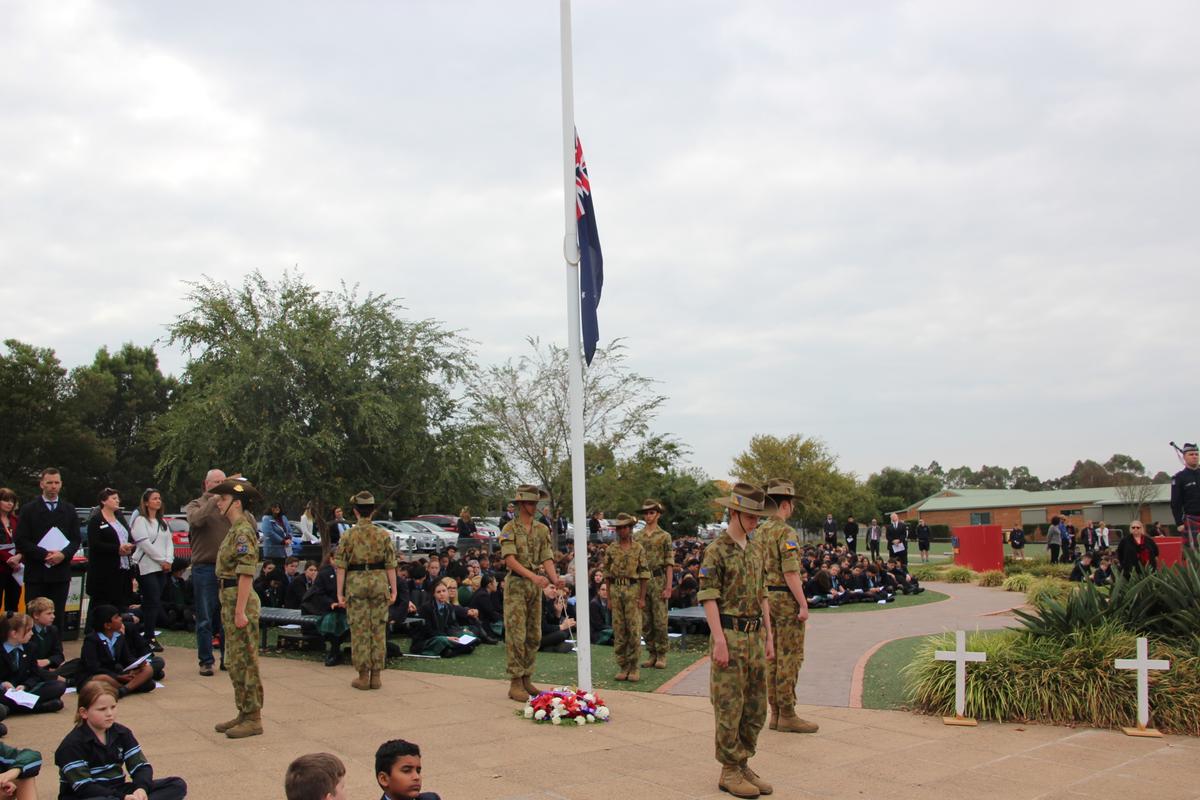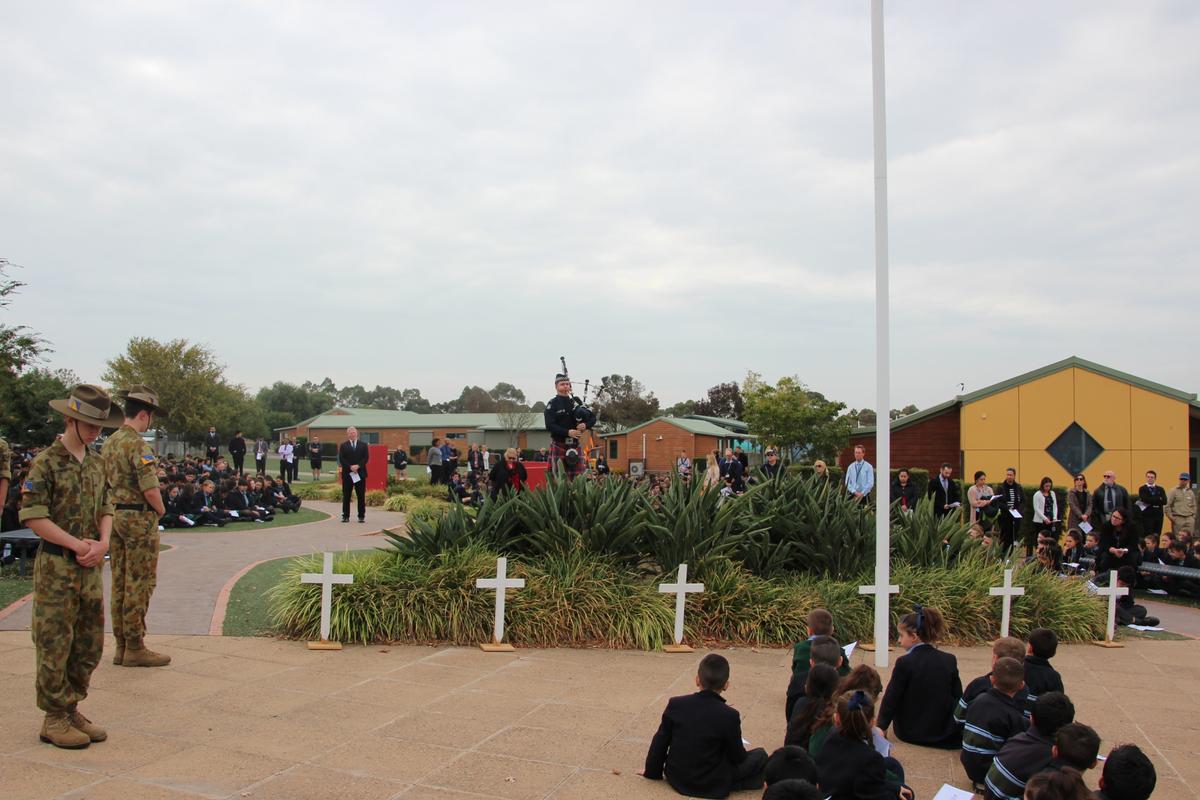Principal's Message

Mrs Josie Crisara
Welcome Back
Welcome back to Term 2. There will be many exciting activities during the term in which students can participate and parents can get involved. I encourage you to support events as far as possible including the Parents and Friends Association Mothers Day Breakfast and Stall on Thursday 9 May as well as the Comedy night on Friday 17 May .
ANZAC Service
At this year’s ANZAC Service, I spoke to students in relation to the contribution that Indigenous Australians have made to our country’s war efforts, focusing on World War 1. Aboriginal and Torres Strait Islander Australians volunteered to enlist in the First World War. They stood side by side with other Australians to answer the call of duty. However, when Aboriginal and Torres Strait Islander people volunteered for war service in World War I they were not recognised as citizens, they did not have the right to vote; did not even have the freedom of movement to decide where they could live, they experienced poverty and discrimination. So why did indigenous people enlist? Signing up gave them the opportunity to be treated as equals with other Australians promising freedom, good pay and adventure.
Aboriginal people were not Australian citizens but legally British subjects and so could enlist in the voluntary Australian Imperial Force. More than 400 Aboriginal and Torres Strait Islander men are known to have enlisted in the First World War from a population of around 80,000 Indigenous Australians. Having served and sacrificed for their country, Aboriginal men returned to being non-citizens without the rights and respect accorded their fellow veterans. Indigenous Australians were not recognised as full citizens until the 1967 Referendum. This decision was a key step towards ending discrimination and towards attainment of full political rights for the Indigenous people in our country. So when we think about all those who have been involved in conflict we should think about the Indigenous Australians who not only fought for our country but fought for their rights.
At the Service, I shared a poem written by Cecil Fisher, an Australian Indigenous serviceman, who served during the Korean War. The poem references a memorial built at the Yegumbah Boara Ring on the Gold Coast. It is a site that acknowledges the contributions made by Indigenous Australians who served.
Black ANZAC
They have forgotten him, need him no more
He who fought for his land in nearly every war
Tribal fights before his country was taken by Captain Cook
Then went overseas to fight at Gallipoli and Tobruk
World War One two black Anzacs were there
France, Europe’s desert, New Guinea’s jungles, did his share
Korea, Malaya, Vietnam again black soldier enlisted
Fight for democracy was his duty he insisted
Back home went his own way not looking for praise
Like when he was a warrior in the forgotten days
Down on the Gold Coast a monument in the Bora Ring
Recognition at last his praises they are starting to sing
This black soldier who never marches on ANZAC Day
Living in his Gunya doesn’t have much to say
Thinks of his friends who fought some returned some died
If only one day they could march together side by side
His medals he keeps hidden away from prying eyes
No one knows, no one sees the tears in his old black eyes
He’s been outcast just left by himself to die
Recognition at last black ANZAC hold your head high
Every year at Gold Coast’s Yegumbah Bora Ring site
Black ANZAC in uniform and medals a magnificent sight
The rock with Aboriginal tribal totems paintings inset
The Kombumerri people’s inscription of LEST WE FORGET
Mickleham Road
In mid April, I attended a meeting arranged by Ros Spence, to speak to the advisers to several Ministers regarding the traffic situation on Mickleham Road and the impact it is having on the College entrance. Can I ask you to continue to raise your concerns and write letters explaining the impact it has on you. The local member has been tabling petitions organised through the Greenvale Residents’ Association, in parliament for duplication of the road. I urge you to continue signing petitions and getting signatures to petitions (please note they need to be handwritten) and submit to the College Reception.
Contact Details:
Ros Spence - State Member for Yuroke
ros.spence@parliament.vic.gov.au
Jaala Pulford - Minister for Roads and Roads Safety
jaala.pulford@parliament.vic.gov.au
Hume Leader Newspaper
VicRoads
https://www.vicroads.vic.gov.au/contact-us/feedback-and-enquiries
Petition Form
NAPLAN
NAPLAN tests will commence in a few weeks for students in Years 3, 5, 7 and 9 and students are encouraged to do their best when completing them. NAPLAN is one of many forms of data for checking on student progress. The College recently received communication from ACARA congratulating us on demonstrating substantially above average gain in various areas of NAPLAN for 2018. Their communication was as follows:
“For several years, ACARA has released information on schools demonstrating substantially above average gain in student reading and/or numeracy achievement, as measured by NAPLAN, as students progress from Year 3 to Year 5 and from Year 7 to Year 9. Gains of this magnitude are significant and worthy of acknowledgement.
I am pleased to advise that ACARA has identified your school as having demonstrated substantially above average gain in reading and/or numeracy achievement, as measured by NAPLAN.
On behalf of ACARA, I would like to extend my congratulations to you and your school community on this achievement. Improvement in student literacy and/or numeracy of this magnitude, as measured by NAPLAN, is significant and worthy of highlighting and acknowledging.”
The College’s 2018 NAPLAN results showed consistently high growth rates across all year levels, indicating that students are, on average, learning faster than their peers across the country. A range of factors can be attributed to this including:
- A College-wide focus on teacher collaboration and teamwork to build consistency and share best practice strategies.
- Use of contemporary assessment strategies, including developmental rubrics, to build student confidence and motivation.
- Valuing of skill development rather than merely factual recall.
- The belief that delivery of a rigorous curriculum will lead to better student learning and, consequently, better NAPLAN results than unnecessary NAPLAN test practice.
- An effective pastoral care system which creates a positive school culture.
The 2018 NAPLAN results indicate that 34% of our students are in the top quarter of students across the country when their growth rates are compared, averaged across our Year 5, 7 and 9 students. Our most outstanding results were in Year 5, where 41% of our Year 5 students are in the top quarter of the country’s growth rates. Our staff have done a great job with this.


